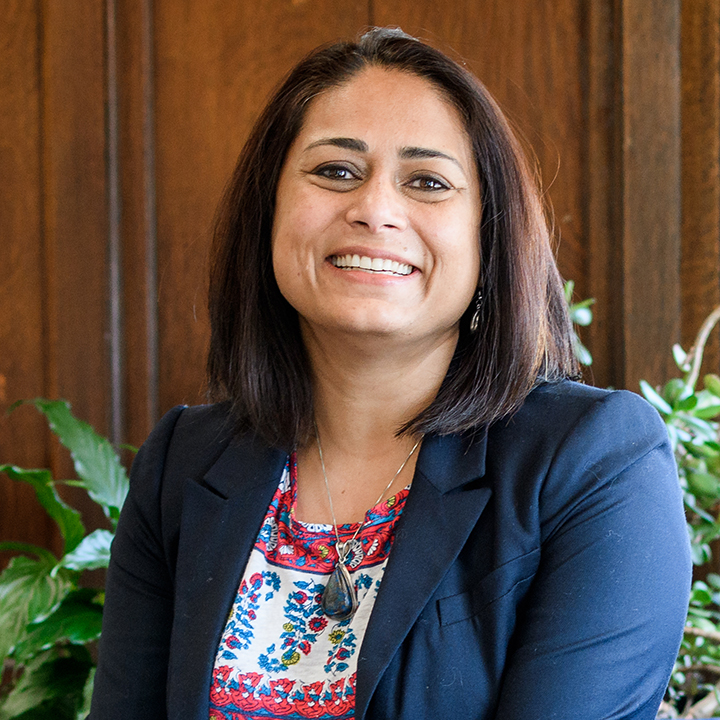-
Homogenization or Environmental Injustice in Urban Landscapes? A Comparative Analysis of Land Cover Across Six Diverse Cities.
Published in Landscape and Urban Planning
Rinku Roy Chowdhury, Dexter Locke, Aaron Grade, J M Grove, Carlos Dobler Morales, et al
-
Cross-scale social drivers of yard vegetative outcomes in the American residential macrosystem.
Published in Cities and the Environment
Aaron Grade, Rinku Roy Chowdhury, Carlos Dobler Morales, Josep Padullés Cubino, Kelli Larson, Jeannine Cavender-Bares, et al
-
A mature land-system science has deepened its conceptualization of environment
Published in Progress in Environmental Geography
Rinku Roy Chowdhury, Darla Munroe
-
Design principles, landscape change and environmental history in New England’s Forest Commons
Rinku Roy Chowdhury, Jonathan Thompson
-
A mature land-system science has deepened its conceptualization of environment
American Association of Geographers
Darla Munroe, Rinku Roy Chowdhury
-
Ecological homogenization of soil properties in the American residential macrosystem
Christopher D Ryan, Peter M Groffman, J Morgan Grove, Sharon J Hall, James B Heffernan, Sarah E Hobbie, Dexter H Locke, Jennifer L Morse, Christopher Neill, Kristen C Nelson, Jarlath O’Neill-Dunne, Rinku Roy Chowdhury, Meredith K Steele, Tara L. E. Trammell
-
Ten facts about land systems for sustainability
Published in Proceedings of the National Academy of Sciences
Patrick Meyfroidt, Bremond, Ariane De, Casey M Ryan, Emma Archer, Richard Aspinall, Abha Chhabra, Gilberto Camara, Esteve Corbera, Ruth DeFries, Sandra D’iaz, others
-
Urban stream restoration and justice: Integrating political ecology & coupled natural-human systems frameworks.
American Association of Geographers
Virtual Presentation
Rinku Roy Chowdhury, Arman Bajracharya, Maddy Molina, Sharon Moran, Spandan Pandey, Julia Wagner
-
A multi-city analysis of urban vegetation in neighborhoods and parcels: the role of socioeconomic and institutional contexts
American Association of Geographers
Virtual/Seattle WA
Rinku Roy Chowdhury, Aaron Grade, Dexter Locke, Carlos Dobler-Morales, et al.
-
Institutional and individual drivers of yard vegetative structure and composition in the American residential macrosystem
American Association of Geographers
Virtual/Seattle WA
Aaron Grade, Rinku Roy Chowdhury, Carlos Dobler-Morales, et al.
-
Urban infrastructure development and social vulnerability to extreme climate events in Miami-Dade County, Florida
American Association of Geographers
Virtual/Seattle WA
Kyle Pecsok, Rinku Roy Chowdhury, John Rogan
-
Long-term agricultural nutrient trends in the Florida Everglades: Implications for governing diffuse water pollution
American Association of Geographers
Virtual/Seattle WA
Landon Yoder, Rinku Roy Chowdhury, Carson Hauck
-
Cross-scale social drivers of yard vegetative outcomes in the American residential macrosystem
Ecological Society of America
Aaron Grade, Rinku Roy Chowdhury, others
-
Early ecological outcomes of passive and active forest restoration approaches in Western Rwanda
Bernadette Arakwiye, Sandy Andelman, Rinku Roy Chowdhury, John Rogan, J R Eastman
-
Governing intensification: The influence of state institutions on smallholder farming strategies in Calakmul, Mexico
Published in Journal of Land Use Science
Carlos Dobler-Morales, R Roy Chowdhury, B Schmook
-
Investments’ role in ecosystem degradation–Response
Sandra D’iaz, Josef Settele, Eduardo S Brond’izio, Hien T Ngo, Alexander Pfaff, Stephen Polasky, John Agard, Almut Arneth, Patricia Balvanera, Kate A Brauman, Stuart Butchart, Kai Chan, Lucas Garibaldi, Kazuhito Ichii, Jianguo Liu, Suneetha Subramanian, Guy Midgley, Patricia Miloslavich, Zsolt Molnár, David Obura, Andy Purvis, Jona Razzaque, Belinda Reyers, Rinku Roy Chowdhury, Yunne J Shin, Ingrid Visseren Hamakers, Katherine J Willis, Cynthia N Zayas
-
How the Nonhuman World Influences Homeowner Yard Management in the American Residential Macrosystem
Published in Human Ecology
Jesse M Engebretson, Kristen C Nelson, Laura A Ogden, Kelli L Larson, J Morgan Grove, Sharon J Hall, Dexter H Locke, Diane E Pataki, Rinku Roy Chowdhury, Tara LE Trammell, others
-
Watershed restoration in the Florida Everglades: Agricultural water management and long-term trends in nutrient outcomes in the Everglades Agricultural Area
Published in Agriculture, Ecosystems & Environment
Landon Yoder, Rinku Roy Chowdhury, Carson Hauck
-
Working with Indigenous and local knowledge (ILK) in large-scale ecological assessments: Reviewing the experience of the IPBES Global Assessment
Published in Journal of Applied Ecology
Pamela McElwee, ‘Alvaro Fern’andez-Llamazares, Yildiz Aumeeruddy-Thomas, D’aniel Babai, Peter Bates, Kathleen Galvin, Maximilien Gu`eze, Jianguo Liu, Zsolt Moln’ar, Hien T Ngo, others
-
Framing the search for a theory of land use
Published in Journal of Land Use Science
B L Turner, Patrick Meyfroidt, Tobias Kuemmerle, Daniel M"uller, Chowdhury, Rinku Roy
-
Municipal regulation of residential landscapes across US cities: patterns and implications for landscape sustainability
Published in Journal of Environmental Management
Kelli L Larson, Riley Andrade, Kristen C Nelson, Megan M Wheeler, Jesse M Engebreston, Sharon J Hall, Meghan L Avolio, Peter M Groffman, Morgan Grove, James B Heffernan, others
-
Urban stream restoration and justice: Integrating political ecology and coupled natural-human systems frameworks.
Published in Frontiers in Ecology and Evolution
Rinku Roy Chowdhury, Arman Bajracharya, Maddy Molina, Sharon Moran, Spandan Pandey, Julia Wagner
-
Urban stream restoration and justice: Integrating political ecology and coupled natural-human systems frameworks.
Published in Urban Water Journal or Landscape and Urban Planning
Rinku Roy Chowdhury, Arman Bajracharya, Maddy Molina, Sharon Moran, Spandan Pandey, Julia Wagner
-
Homogenization or Environmental Injustice in Urban Landscapes? A Comparative Analysis of Land Cover Across Six Diverse Cities.
Published in Landscape and Urban Planning
Rinku Roy Chowdhury, Dexter Locke, Aaron Grade, J M Grove, Carlos Dobler Morales, et al
-
Cross-scale social drivers of yard vegetative outcomes in the American residential macrosystem.
Published in Cities and the Environment
Aaron Grade, Rinku Roy Chowdhury, Carlos Dobler Morales, Josep Padulles Cubino, Kelli Larson, Jeanine Cavender-Bares, et al


